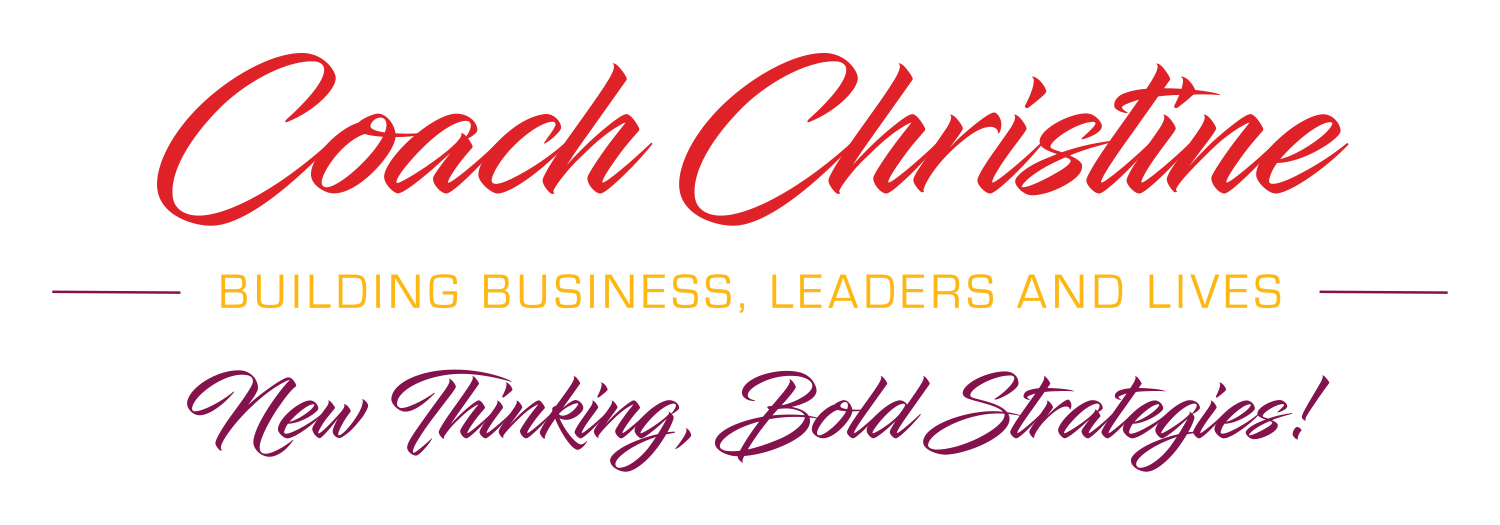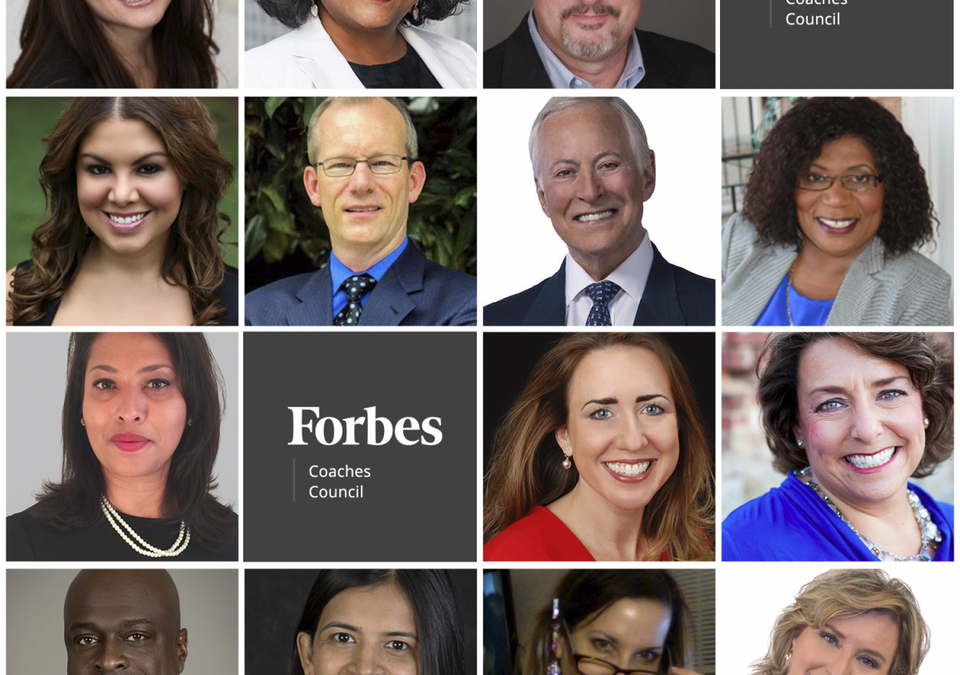You know the feeling: Everything seems to be falling apart and people are looking to you for answers, but you’re one question away from blowing up in front of everyone.
Initially published through Forbes Coaches Council
Everyone has stressful days in and out of the office, and it’s natural to have a negative emotional response in these situations. However, a person with high emotional intelligence (EQ) is self-aware enough to recognize those feelings and talk themselves down before they get pushed over the proverbial edge.
Sixteen members of Forbes Coaches Council explained how an emotionally intelligent person can rein in their emotions and maintain their cool in times of high stress.
1. Learn Your Triggers
In advance of a stressful situation and during a quiet time, write down your top stressors. Connect them to people and events. Then, come up with a cognitive and a behavioral way to refocus your energy when you’re triggered. Behaviorally, means removing yourself or breathing deeply. Cognitive refocus is replacing your anxious or angry thoughts with logic. Build your EQ through preparation. – Loren Margolis, Training & Leadership Success LLC
2. Create Some Distance
Recognizing that you are reaching your limit is already a bonus. The trick is to see before you go over the edge and takes steps to get some distance. Distance, in the form of a break, gives perspective and allows you to be more strategic and intentional about how you react to and/or manage the stress. – Rose Cartolari, Rose Cartolari Consulting
3. Build Your Workplace Intelligence (WQ)
Sometimes, even those with admirable levels of EQ get pushed to the edge. Those able to step away from the ledge, without forcing someone else to take their place, are often grounded by keeping the mission the highest priority for themselves and their team. We call this “workplace intelligence,” or WQ, and it represents our collective ability to achieve results even in the most challenging times. – Mark S. Babbitt, YouTern
4. Work On Your Self-Confidence
As an influencer, nothing adds to your cause more than your confidence and belief in what you are standing up for. Confidence will empower you to set boundaries, improve your argument, and effectively hold others accountable without losing your cool in a discussion. Confidence typically arises from competence. Continue learning and growing as a person and as a professional to grow your confidence. – Ilean Harris, Ilean Harris
5. Write It Out
One of the toughest attorneys I know channels her potential response to intense conflict into writing. Furiously writing out her response to another attorney or client, but not actually sending that writing to anyone, helped her create a powerful, productive habit. Nothing is sent out of this journal until logic rules over emotional reaction. – John M. O’Connor, Career Pro Inc.
6. Consider The Impact Of Your Emotions On Yourself And Your Team
An emotionally intelligent person has the unique ability to notice their emotions as they arise. In the case of being pushed over the edge, they will understand the impact their emotions are having on their thinking ability and will notice and act on the need to manage those emotions, as well as their teammates’ emotions. Then they can relieve stress by talking about it or taking a break. – Brian Tracy, Brian Tracy International
7. Confide In Someone You Trust
One of the elements of emotional intelligence is social skills: the ability to communicate well, manage disputes, build and nurture relationships, and exhibit strong interpersonal skills. If such an individual is at the edge, then it’s time to access the company’s Employment Assistance Program (EAP) and confide in a counselor. If such a service does not exist, talk it through with a confidante. – Daisy Wright, The Wright Career Solution, Brampton/Toronto
8. Name, Then Tame Your Stressors
First, be aware of the trigger (person, event) that is pushing you over the edge. Name it and tame it. Then, get your brain and emotions in check by taking deep breaths, a short walk, a drink of water – anything to flush out the stress hormones. Then formulate a strategy to address the trigger. If it’s a person, tell them how they are (intentionally or unintentionally) impacting you. – Shoma Chatterjee, ghSMART
9. Take An Anthropological View
Anthropologists learn the benefit of “third person.” The more you can observe human behavior, understand the culture, see conflict and stay neutral to the situation, the better you can remain calm, ask questions and disengage from taking anything personally. Step away to evaluate yourself, the situation, cause/effect, and how you are coming across to others. – Joanne Markow, GreenMason
10. Know Where The Edges Are
You can’t be pushed over the edge if you know where the edges are. Emotionally intelligent people understand their own hot buttons and limits, and they’re able to read their own cues and halt bad behavior in advance. This self-awareness isn’t magic – it takes time, attention and a willingness to learn from falling over the edge one time too many. – Darcy Eikenberg, Red Cape Revolution
11. Focus On Your Passion
Hopefully a professional with high emotional intelligence is in a career that they are passionate about pursuing. During difficult times, focus on why you are passionate about your career. Let your purpose keep you motivated through challenging situations. – Donald Hatter, Donald Hatter Inc.
12. Seek Awareness, Acknowledgement, Acceptance And Action
Self-awareness is the first step in this process. Once we do this, we can acknowledge the emotions or triggers, accept them as they are without fighting against then, then decide on what action will create a win-win situation for everyone involved. Realize that how someone chooses to act towards you is a decision they make, and has nothing to do with who you are or your values. – Sharissa Sebastian, Sharissa Sebastian – Life & Leadership Coaching
13. Build Resilience
Identify key practices that trigger a path to resilience when personal setbacks start to emerge. Bounce back by staying focused on a project/idea that excites you creatively to reboot. Keep a positive attitude and outlook to help you adjust better through challenges. Make a conscious decision to thrive in spite of adverse events, and allow these hardships to enhance your personal growth. – Rachel Lourdes Mestre, Rachel Mestre LLC
14. Respond, Don’t React
It’s very easy to be drawn into the vortex of emotional reaction. To avoid this trap, respond instead of react. Three tools to use are time (ask for more time to evaluate and commit to reconvene), space (physically move – take a walk, get oxygen moving in you) and pause for reflection. Avoid reaction by creating time, space and pause, allowing your skillful response. – Christine J. Culbertson (Boyle), Coach Christine
Meet Coach Christine
Christine coaches with ROI top-of-mind. Many companies who leverage her coaching produce quick and long-lasting results transforming people, processes and culture, impacting their bottom line. Clients have seen upward of 200% ROI.
Her time with clients generates powerful results in:
- Business and Personal Development
- Communication and Relationships
- Sales and Sales Leadership
Watching and learning at the feet of titans of Canada’s Wall Street and other business leaders, Coach Christine was influenced by their success and built a corporate career and coaching business founded on proven business practices.
She is an award-winning business woman and contributor to Forbes publications; is an accredited coach with the ICF; a practitioner of Conscious Business practices; is certified by the IMPACT: Coaching with ROI program; holds her First and Second Degree Reiki and has studied Aboriginal healing for over 20 years. Christine loves the adventure of travel and has a knock-out collection of snazzy women’s shoes.
When you want more, are ready to bust obstacles and build your juicy, big life, contact me, Coach Christine Culbertson.

